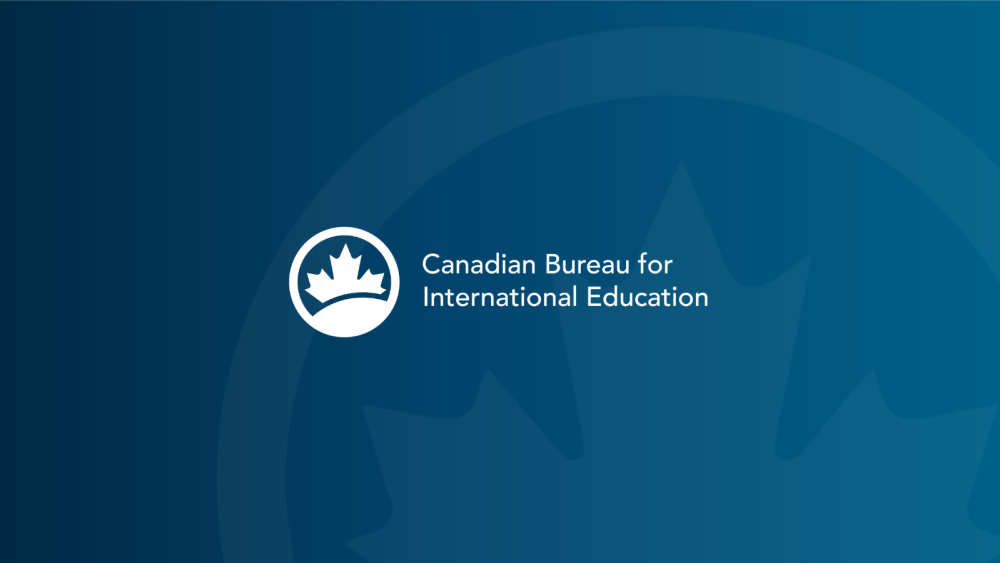CBIE fully acknowledges that Canada’s international education (IE) policies need to be recalibrated and that bad behaviour on the part of a minority of actors needs to be penalized. The implications of unchecked, and in some cases unethical, growth absolutely must be remedied. But defining what constitutes a sustainable level of international student enrollment in diverse communities across the country and how to make that determination is a complex undertaking Canada needs to get right.
CBIE recognizes that IRCC has chosen to take leadership on issues in international education using the policy levers available to them. However, we are concerned that IRCC’s earnest approach to ‘fix the problem’ through a wide-sweeping cap on the number of international students coming to Canada may have serious unintended consequences. This hasty one-size-fits-all solution may jeopardize the benefits of international education that many communities across the country experience and rapidly unravel a strong global Canadian education brand that has taken years to build. A 35% reduction in student visas is ultimately a signal to prospective international students around the world that Canada is closing its doors. These measures have the potential to cause irreparable harm to the EduCanada brand, and in a highly globally competitive market, students may opt to choose other countries instead, well beyond the two-year duration of these measures.
Canada’s IE sector is neither oblivious, indifferent, nor naïve about the challenges. However, if the national understanding of the value of IE erodes over immediate concerns about housing or health care, we all lose over the long term. As they implement these new measures, CBIE urges the federal and provincial governments to carefully consider what is at stake when assigning the announced allocations to designated learning institutions.
International students make invaluable contributions to the quality of life on campuses and to the communities across the country that host them (large, small, rural, urban), and they garner significant life and career impacts from their Canadian study experience. The sector’s economic impacts are estimated at $22 billion annually—more than the auto parts, lumber, and aerospace sectors combined— and facilitate the creation of over 170,000 jobs. Furthermore, international student enrollment supports broader Canadian public policy priorities- including addressing skill gaps in key labour market sectors, meeting Canada’s demographic challenges, and advancing our international interests.
Canada needs smart solutions, not simplistic ones. To that end, CBIE calls on the federal and provincial governments to consider the following as they implement the reforms to the International Student Program announced today and as they explore a longer-term approach to international students in Canada.
- Policy-makers need to acknowledge jurisdictional roles and accountabilities, and institutional autonomy, and that durable solutions can only result from intergovernmental dialogue involving a range of ministries (not just education and immigration).
- One-size-fits-all, top-down solutions risk penalizing institutions and jurisdictions that are doing a good job delivering a positive IE experience. The over-saturation of international students in certain regions or programs of dubious merit absolutely needs to be addressed by relevant jurisdictions and at an institutional level. It also needs to be recognized that smaller provinces and territories and rural communities are rightly clamouring for more international student enrollment, not less, and are taking steps to ensure the infrastructure to accommodate their requirements is in place.
- Solutions need to distinguish between the different imperatives and realities of colleges and universities. Requirements for designated learning institutions that host international students need to be more rigorous, reporting more transparent and the consequences of failure to comply more consistent and immediate at a pan-Canadian level. The role and capacity of colleges and universities are fundamentally different. This too needs to be taken into account, along with the broader economic, employment and labour market impacts of alternative measures.
- As a country, we must ensure that those who opt to study in Canada receive a high-quality international education experience and that high standards are applied across the sector to ensure the wellbeing of international students – including through adequate availability, affordability and access to housing, medical, social, community and labour market supports.
- Ultimately, we need a clear focal point of ethics and accountability at the pan-Canadian level to track intake, monitor enrollment trends and report transparently to Canadians on the performance of our designated learning institutions in delivering a high-quality IE experience. Complete, timely and consistent data on enrollment and performance; and sector-wide ethical standards must be part of any solution to creating a sustainable IE sector.
CBIE and its member institutions are ready and willing to engage with all levels of government to get this right for Canada, for communities, for institutions, for domestic students (who are likely to lose access to programming and institutions as a result of these cuts), and for international students. Constructive dialogue and careful analysis is needed on an urgent basis to design both short and long-term solutions which will not diminish one Canadian policy priority in order to fix another.
Media contact:
Melissa Payne, Director, Membership, Research and Learning
mpayne@cbie.ca



Comments are closed.